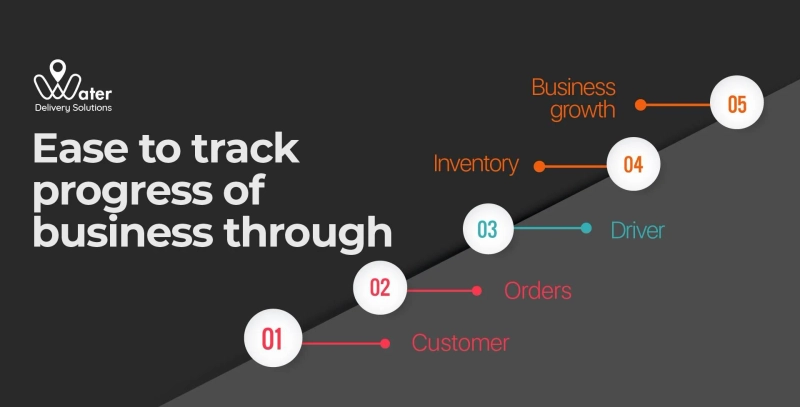In the fast-paced world of logistics and supply chain management, the efficiency of deliveries stands as a pivotal element. Businesses, regardless of size, are continuously seeking ways to streamline their delivery processes to meet growing customer expectations and optimize their operations. This is where a robust Delivery Management System (DMS) steps in, offering many benefits that revolutionize the logistics landscape.
Enhanced Visibility and Tracking
One of the primary advantages of a Delivery Management System is the transparency and real-time tracking it provides throughout the delivery cycle. From the moment an order is placed to its final destination, businesses and customers alike gain visibility into the entire journey. Real-time tracking enables accurate ETA predictions, empowering customers to plan accordingly and reducing inquiries about delivery status. For businesses, this visibility translates into better decision-making, enabling them to identify bottlenecks and optimize routes for more efficient deliveries.
Optimized Route Planning and Resource Utilization
Efficient route planning is fundamental to reducing delivery time and operational costs. A DMS employs sophisticated algorithms that analyze multiple variables like traffic patterns, delivery destinations, vehicle capacity, and more to generate the most optimal routes. By optimizing routes, businesses can minimize fuel consumption, reduce vehicle wear and tear, and allocate resources more effectively, leading to cost savings and improved productivity.
Improved Customer Satisfaction
In today's on-demand economy, meeting customer expectations regarding delivery speed and reliability is crucial. A Delivery Management System plays a pivotal role in enhancing customer satisfaction by ensuring timely and accurate deliveries. With real-time updates and alerts, customers are kept informed, fostering trust and loyalty. Additionally, features like delivery customization and flexible scheduling empower customers to choose delivery options that align with their preferences, further elevating their experience.
Streamlined Communication and Collaboration
Effective communication among stakeholders—delivery personnel, customers, and businesses—is essential for seamless operations. A DMS facilitates smooth communication by enabling instant notifications, alerts, and two-way communication channels. This streamlines coordination between all involved parties, reducing errors, misunderstandings, and delays. Moreover, by centralizing data and information, a DMS fosters collaboration, allowing teams to work cohesively towards common goals.
Data-Driven Insights for Continuous Improvement
The wealth of data generated by a Delivery Management System is a treasure trove for businesses. Businesses can gain valuable insights into delivery performance, customer behavior, and operational inefficiencies through analytics and reporting features. This data-driven approach empowers businesses to make informed decisions, implement targeted improvements, and adapt strategies to evolving market demands, ensuring continuous enhancement of their delivery processes.
In conclusion, the benefits of implementing Delivery Management Software are far-reaching, positively impacting operational efficiency, customer satisfaction, and overall business performance. By harnessing the power of technology to optimize deliveries, businesses can stay ahead in an increasingly competitive market, setting new standards for service excellence and reliability.



